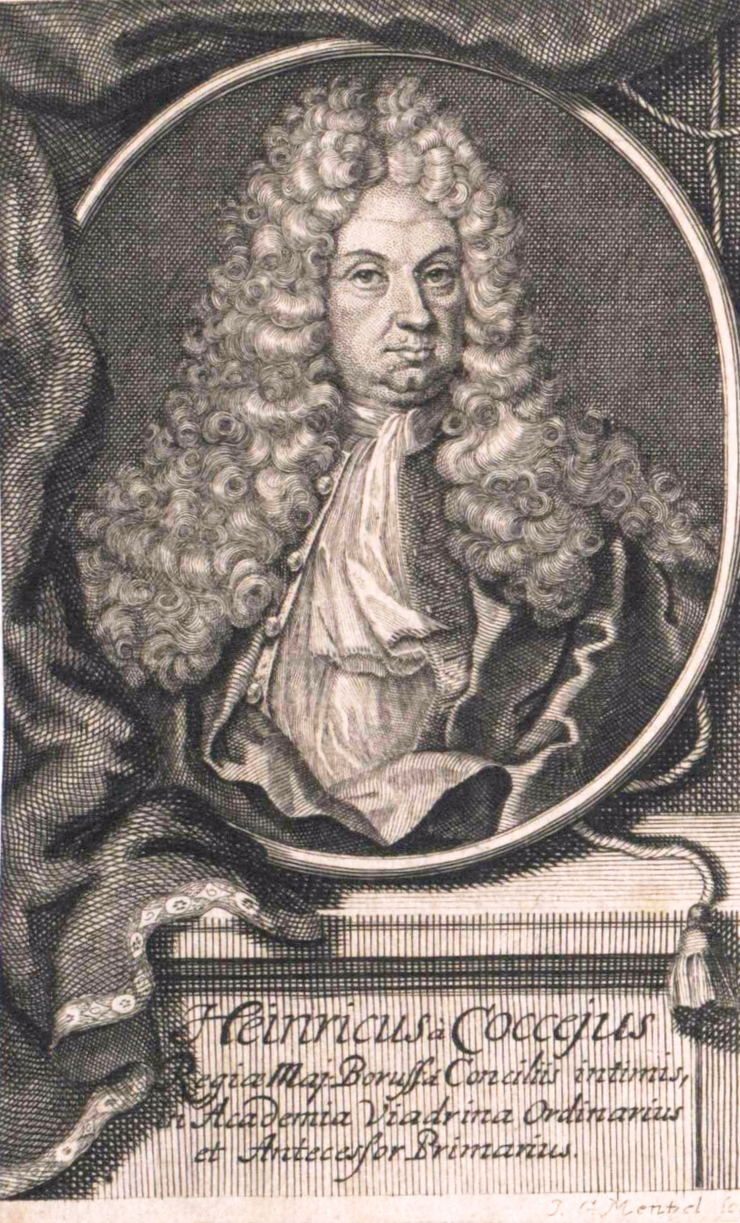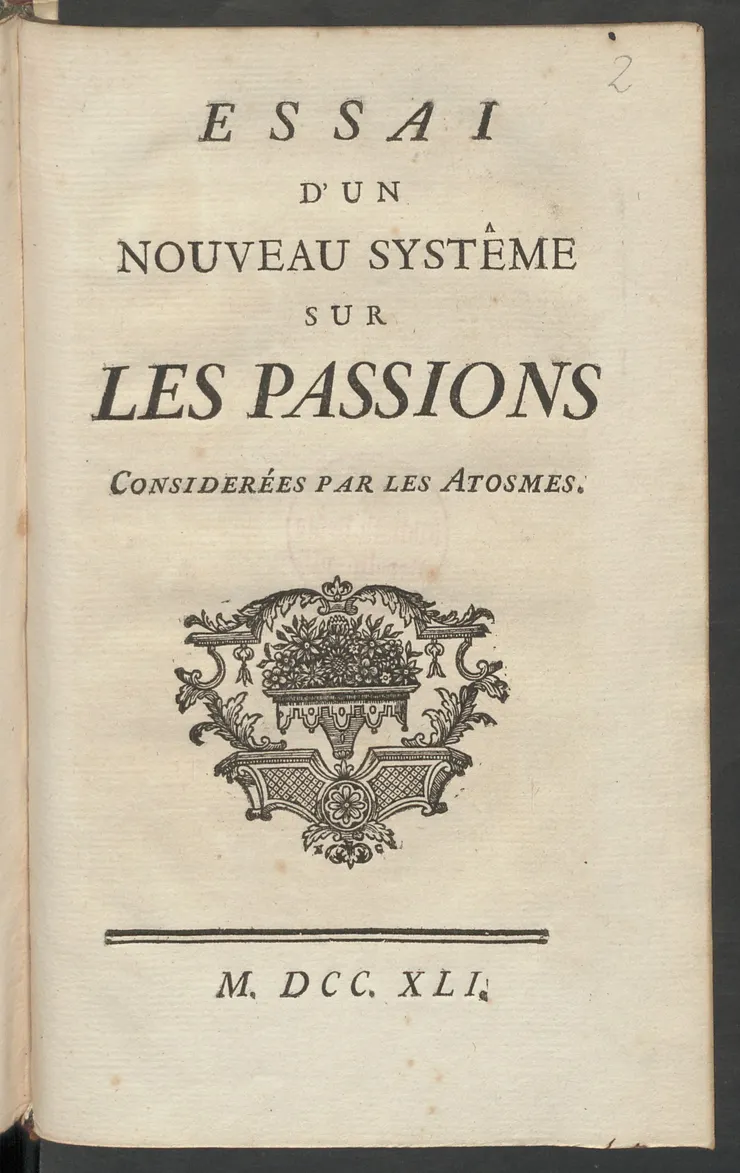Universität Erfurt
Gotha Research Centre
Postfach 90 02 21
99105 Erfurt
Universität Erfurt
Gotha Research Centre
Postfach 90 02 21
99105 Erfurt
Universität Erfurt
Gotha Research Centre
Postfach 90 02 21
99105 Erfurt
since February 2024
Research Project on "Protestant law of nations and the birth of rights universalism. Heinrich and Samuel Cocceji's natural law theories and their controversial reception in the European Enlightenment", DFG funding, Gotha Research Centre
07/2023-12/2024
Gerda Henkel funding for "Atoms, Monads, and Passions in Julien Offray de La Mettrie's early work Essai d'un nouveau systême sur les passions, considerées par les atosmes (1741)"
2021-2022
Scholar at the Gotha Research Centre of the University of Erfurt (development of the proposal: The Leibniz-Cocceji Controversy and its Environment. Possibilities of thinking about subjective rights in German natural law around 1700).
2019-2021
Teaching assistant in welcome classes (GS), Schule am Breiten Luch, Berlin-Hohenschönhausen
2016-2019
Research Assistant, University of Paderborn, Center for the History of Women Philosophers and Scientists (directed by Prof. Dr. Ruth Hagengruber): Project Management Digital Edition: Émilie Du Châtelet, St. Petersburg Manuscripts.
March-August 2016
Research Associate of the Leibniz Endowed Professorship, Gottfried Wilhelm Leibniz University of Hannover (Prof. Dr. Wenchao Li).
2011-2015
Research Associate, Leibniz Edition, Potsdam, Berlin-Brandenburg Academy of Sciences and Humanities (Leibniz Academy Edition, Series IV:Political Writings)
2008-2010
Research assistant in the interdisciplinary research project "Sacramental Representation", Center for Literary and Cultural Research, Berlin
2008
Doctorate (Dr. phil.) with the dissertation "Naturrecht und göttliches Gesetz. Hermeneutische Transformationen bei Grotius, Hobbes und Spinoza" (Philosophical Institute of the Humboldt University of Berlin, doctoral supervisor Prof. Dr. Rolf-Peter Horstmann, second supervisor Prof. Dr. Gerald Hartung)
2006
Visiting scholar at the Centre des Études en Rhétorique, Philosophy et Histoire des Idées, École Normale Supérieure des Lettres et Sciences Humaines (CERPHI-ENS), Lyon
2004-2008
hD student at the Max Planck Institute for History, Göttingen (International Max Planck Research School) Doctoral studies in Medieval and Early Modern Studies, Georg-August-University Göttingen
2004
agistra Artium Philosophy, Modern German Literature, Art History (Master's thesis "Natural Law and Morality in Hegel's Jena System Designs" with Prof. Dr. Rolf-Peter Horstmann)
2001-2003
Student assistant in the library of the Philosophical Institute of the HU Berlin
1997-2004
Studies of Philosophy, Modern German Literature and Art History at the Humboldt-University of Berlin
1996-1997
tudies of Modern German Literature and Philosophy, TU Dresden
1994-1997
Studies of Psychology at the Technical University of Dresden
The project aims to make accessible the natural law doctrine of Heinrich Cocceji (1644-1719) and his son, editor and continuator Samuel (1679-1755). In a monograph, Cocceji's natural law, which centers on a theocratic-voluntary concept of inalienable liberties, is to be presented (1) in its political and ideological contexts and (2) in its controversial reception in the European Enlightenment. Forgotten in the 19th century, the Cocceji's natural rights doctrine was long neglected in comparison to the prominent theories of Pufendorf and Thomasius. The project will show, however, that the Cocceji's natural law represented a veritable, systematically strong alternative to Pufendorf's natural law theory, which was based on an anthropology of deficiencies and embedded in an ethics of duty, and that it was perceived as such by many contemporaries until the pre-March period, so that important impulses for the development of liberal-egalitarian theories of rights in the German and Scottish late Enlightenment emanated from it and it can claim an important rank in the modern genealogy of subjective rights. The project is devoted to the development of this natural rights doctrine over the relatively long period from about 1670-1720, describing at the same time a history of entanglement: entanglement of genesis and reception, and entanglement of Calvinist (as well as Huguenot) and Lutheran (Hallean) early Enlightenment. These intertwinements were intrinsically involved in the development of the Cocceji's natural law doctrine and thus need to be explored as well. Thus, a much more complex and differentiated picture of the early Enlightenment shaped by natural law emerges than was previously the case.
Fig.: Johann Georg Mentzel: Heinrich von Cocceji, ca. 1720.


Atoms, Monads and Passions in Julien Offray de La Mettrie's previously undiscovered early work Essai d'un nouveau systême sur les passions, considerées par les atosmes (1741), project funded by the Gerda Henkel Foundation
The philosophical first work of the physician and radical enlightener Julien Offray de La Mettrie (1709-1751), who died in exile in Prussia in 1751, has so far been considered the Histoire naturelle de l'ame (1745). While La Mettrie had already become known as an author and translator of medical and scientific writings in the preceding decade, neither textual evidence nor reliable biographical data on the prehistory of his first materialist programme appeared to have come down to us so far, so that La Mettrie's philosophical beginnings remained obscure. However, it is most likely that a clandestine publication from 1741 can be attributed to La Mettrie, thus closing an important gap in La Mettrie's intellectual biography. The Essai d'un nouveau systême sur les passions, considerées par les atômes (1741) reveals two constellations that decisively shaped La Mettrie's 'first' philosophy, albeit with partly contrary accents:
1. the debates on metaphysics in the circle of Pierre Louis Moreau de Maupertuis, Voltaire and Émilie du Châtelet;
2. the research and monistic natural philosophical speculations in the circle of La Mettrie's academic teacher and friend François-Joseph Hunauld (1701-1742), which were influenced by neo-Epicurean medicine and Newtonian chemistry.
Exploring these constellations reveals an intriguing new perspective on both the (micro-)genealogy of materialism in the early French
Enlightenment and on the scientific-historical horizons and the intellectual-historical dimensions of La Mettrie's materialist
epistemology.
Fig.: Essai d'un nouveau systême sur les passions considerées par les atosmes. Copy from the former Charlottenburg private library of Frederick II. Title page. Berlin, Staatsbibliothek Unter den Linden.
Abb.: Essai d'un nouveau systême sur les passions considerées par les atosmes. Exemplar aus der ehemaligen Charlottenburger Privatbibliothek Friedrichs II. Titelblatt. Berlin, Staatsbibliothek Unter den Linden.
Critical editions
Monographs
Chapters
Articles
Translations
Reviews